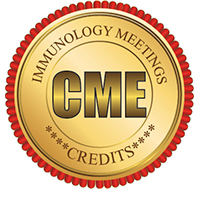
Martina Chikaodinaka Ezeama
Abia State University , Nigeria
Title: Strategies for HIV and AIDS preventive intervention programmes among in School adolescents in Imo State, Nigeria
Biography
Biography: Martina Chikaodinaka Ezeama
Abstract
Introduction
Strategies to prevent Human Immuno-deficiency Virus (HIV) and Acquired Immune Deficiency Syndrome (AIDS among adolescents remain the greatest challenge in human sustainable development especially in developing countries like Nigeria. It is necessary to provide in school adolescents with appropriate HIV and AIDS preventive educational interventions. Effective interventions for sustainable HIV prevention among adolescents are limited in Nigeria. This study investigated the effects of using Class-room Instruction (CI) and Drama (DR) for HIV and AIDS prevention among in school adolescents in Imo State,Nigeria.
Materials and Method:
A quasi-experimental design using 165 students from three randomly selected co-educational secondary schools was adopted. There were two experimental groups (CI and DR) and control. Baseline data were collected using a semi-structured questionnaire with 29-point knowledge and 9-point attitudinal scales. To analyse knowledge, scores of <15 and ≥15 were classified as poor and good respectively; while for attitude, scores of <5 and ≥5 were categorised as negative and positive. The results for baseline studies were used to design interventions that were implemented for 8 weeks. Also mid-term and follow-up evaluations were conducted during the study. Data were analysed using descriptive statistics, t-test and ANOVA at p=0.05.
Results:
The mean ages of the respondents in CI, DR and control groups were 13.4 ± 1.2, 13.9 ± 1.5 and 13.8 ± 1.2 years respectively. Knowledge scores on HIV/AIDS at baseline were 20.5±2.7, 20.4 ± 2.6 and 21.1 ± 2.7 for CI, DR and Control groups respectively. These scores increased to 22.7 ± 2.7, 22.6±1.8 and 21.2 ± 0.3 at mid-term for CI, DR and control, respectively. At follow-up, scores for CI and DR increased to 23.9 ± 1.8 and 24.5 ± 1.4 respectively while the score for the control dropped to 20.0 ± 2.8. Scores for attitude among CI, DR and control groups during baseline study were 5.3 ± 1.4, 4.9 ± 1.5 and 5.3 ± 1.0 respectively. For mid-term, attitude scores were 5.1 ± 1.2, 5.0 ± 0.9 and 4.7 ± 1.5 for CI, DR and control respectively while scores for follow-up were 5.3 ± 1.2, 5.6 ± 0.7 and 4.5 ± 1.2, indicating greater increase among the intervention groups than that of control.
Conclusion:
Intervention using drama yielded more positive outcomes in both knowledge gained and in attitudinal change than others. Drama is therefore recommended as the most appropriate HIV intervention strategy for sustainable HIV and AIDS prevention among in school adolescents in Imo State, Nigeria.
Keywords: Strategies for HIV/AIDS preventive intervention, Knowledge, Attitudinal change, Adolescents in school.

